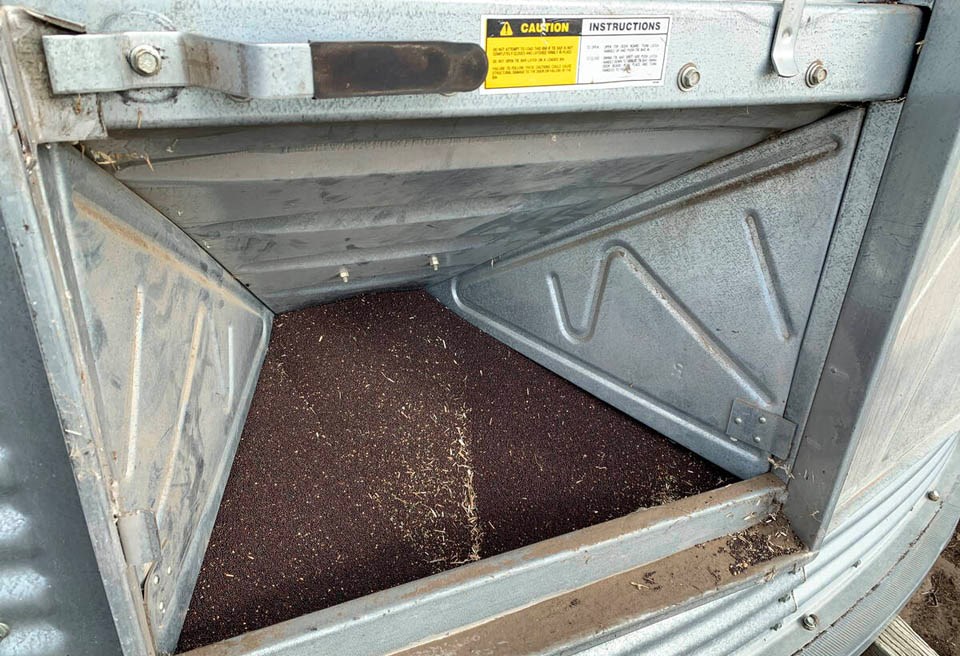WESTERN PRODUCER — By protesting so quickly against China’s tariffs on canola oil and meal, farm representatives may have unwittingly fallen into a trap designed to of their raw seed.
In the last calendar year, Canada exported 3.5 million tonnes of canola oil. Of that, 15,352 tonnes — 0.4 per cent — went to China. As of this crop year to the end of January, total oil exports were 1.8 million tonnes, of which only 50,965 tonnes — 2.8 per cent — went to China. In other words, there is no reason for Chinese tariffs on oil to affect the price of canola seed.
Meal is more significant — China took just over two million tonnes in the last calendar year. But at the end of January, after six months of this crop year, China had already imported 1.1 million tonnes. Official figures aren’t available yet, but had it maintained the same average monthly import pace to March 20, the date tariffs were (supposedly) imposed, total purchases would be almost 1.5 million tonnes with four months left in the crop year.
China may not need to import meal anyway. It’s apparently making plenty of its own.
Canola seed is flying out of the country. At the end of January, total exports were 5.34 million tonnes, 2.4 million tonnes or 80 per cent ahead of last year. China’s portion of 3.2 million tonnes was There’s no sign that seed purchases will stop, especially since China is getting a good deal after prices dropped about 15 per cent when it announced impending tariffs (on oil and meal, not on seed) in early March.
In a former life, I was director of information for the wheat board and in charge of issuing press releases. Once while in Winnipeg, after concluding a large purchase, Chinese negotiators told the board it was getting a good deal because Chicago futures would be down the next day. I was asked to hold the release till the next morning.
Perhaps then more than now, U.S. futures tended to set the world price, but were mainly influenced by U.S. conditions. Traders viewed every bushel sold by others as one less for the U.S. Sure enough, futures dropped the next morning.
Could it be that the Chinese financed part of the purchase by taking a short position overnight, knowing the futures would be down after the announcement?
And could it be that, as of early March, China had its needs covered, so announced tariffs on oil and meal that it had no intention of buying? If so, it did a nice job of driving down prices for its purchases of raw seed. Maybe it even made a profit on a short futures position.
Remember that Chinese purchases are influenced, if not completely controlled, by state-owned companies such as Sinograin. Is the Chinese government really going to collect import tariffs on itself, or is this a meaningless threat?
Bullish fundamentals, bearish news
It still did the trick. The bearish tone from the news was possibly amplified by the flurry of farm organization statements declaring the move as a disaster for farmers. No one took the time to analyze the situation and point out that underlying supply and demand tone of the market is, if anything, bullish.
Meanwhile, farmers hearing nothing but bearish news continue to sell their canola for less than it’s worth.
This is the second time this stunt has worked. In 2019, the industry — and the media — went ballistic over a Chinese “embargo” on canola. There was none. It was only suspension of import licences on two companies. Are we to believe that canola these companies handled didn’t find its way to export under another name?
More fundamentally, are we to believe that the Chinese government has decided that food supplies to its citizens and livestock should be reduced as a punishment to Canada for buying fewer electric cars?
Chinese buyers (maybe it’s just one) are speaking with one voice. But farmers are represented by various organizations making statements designed to put the situation in the worst possible light in order to get government support. Rather than firing off press releases carrying needlessly bearish news, maybe they should have gotten together for a more strategic response and called the Chinese bluff.
About the author
The creation of this content was supplemented by Artificial Intelligence. All AI-assisted or generated content undergoes thorough human review and validation prior to publication.




